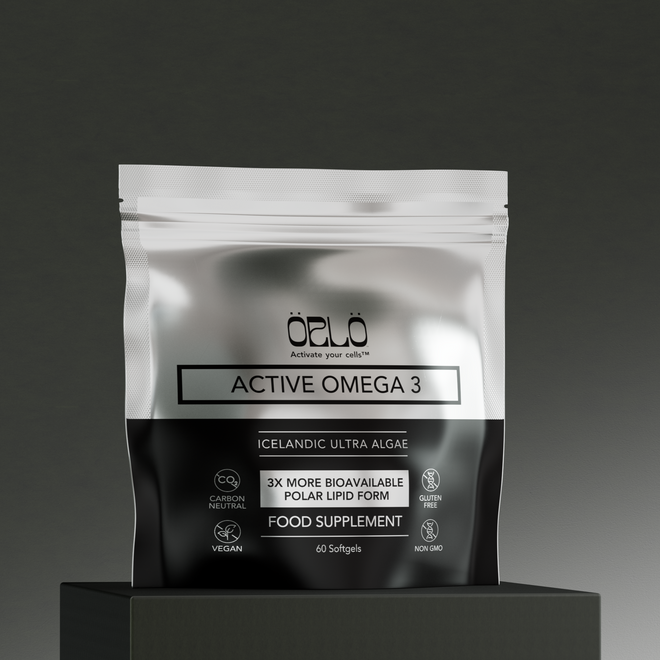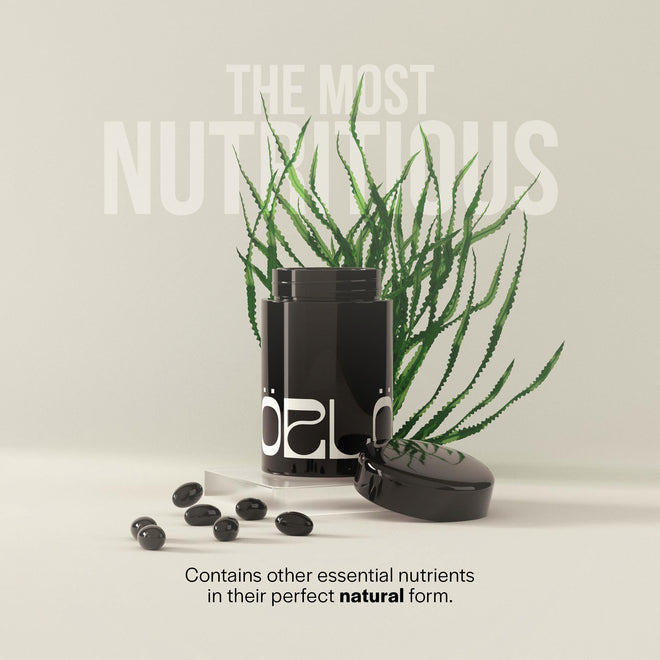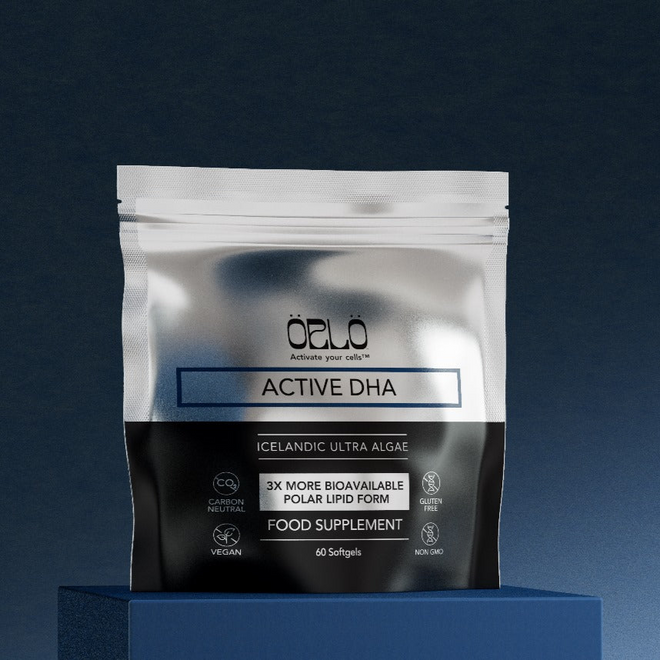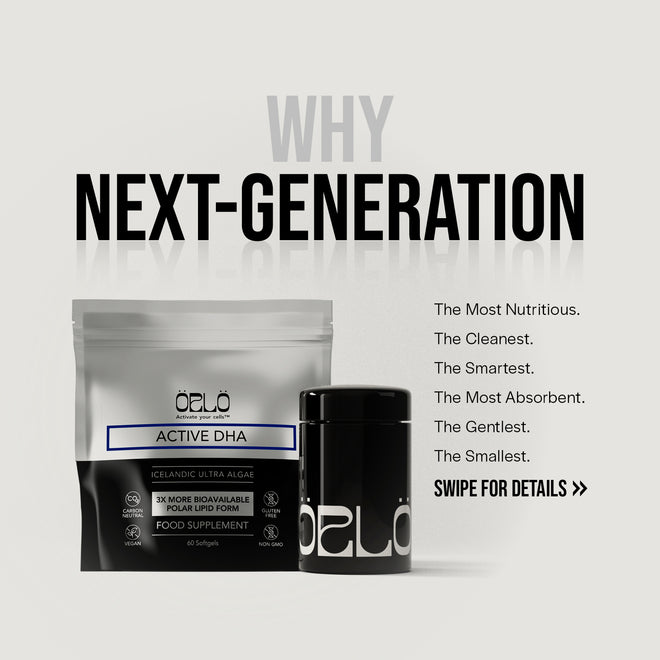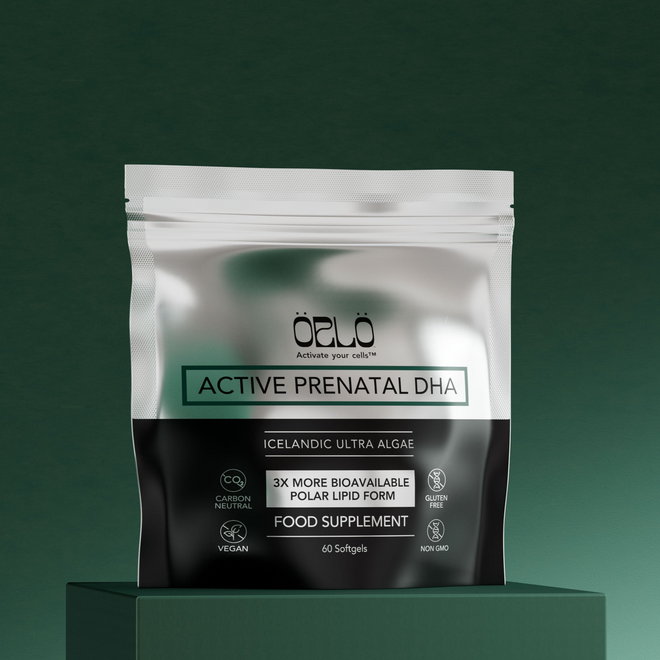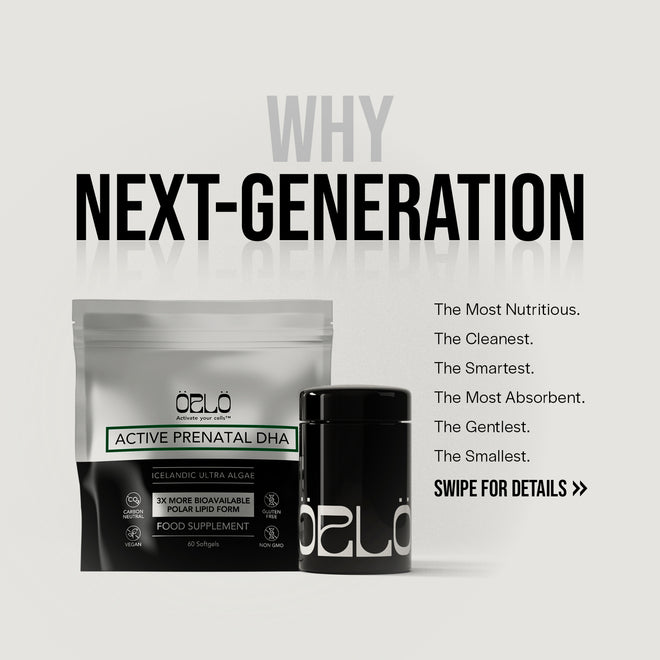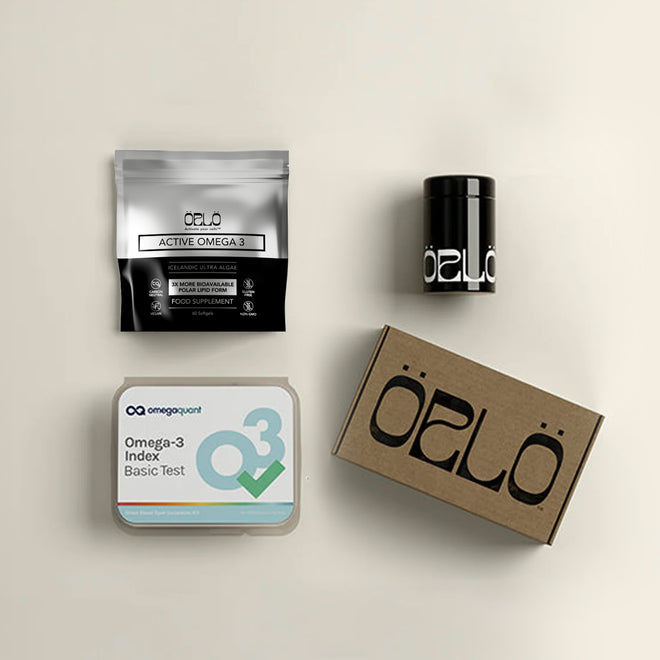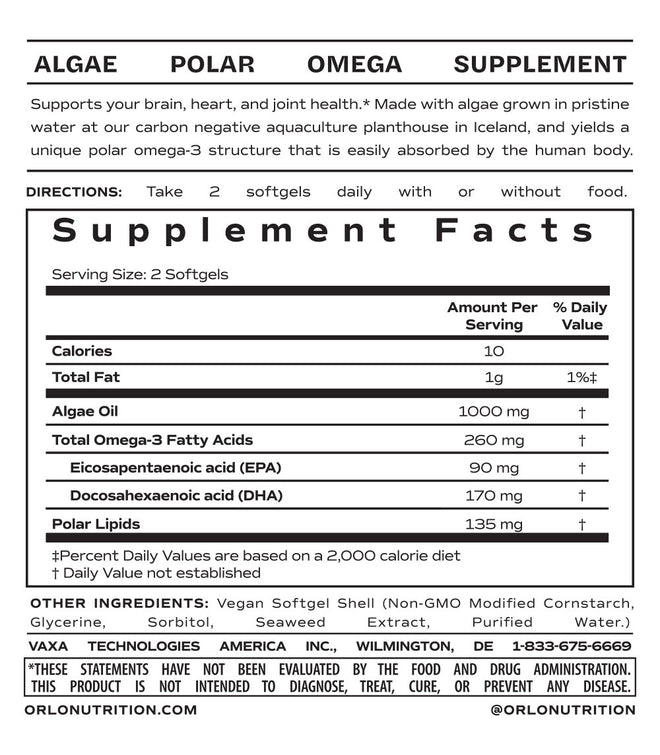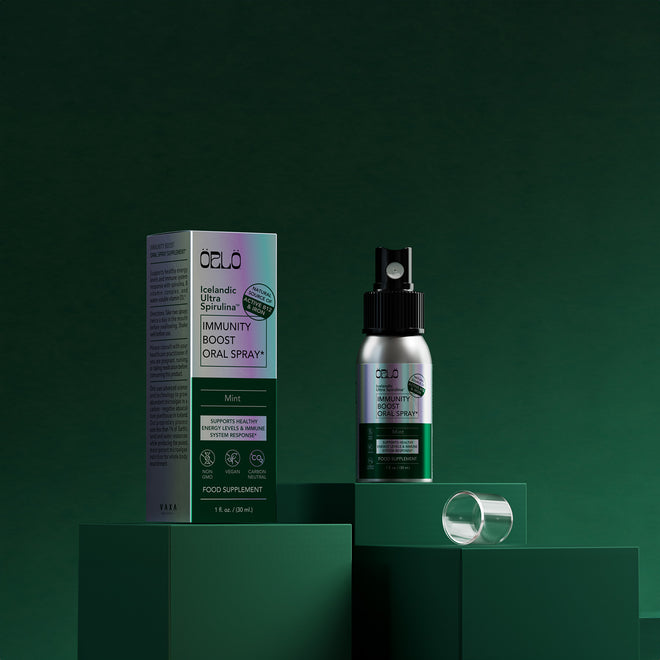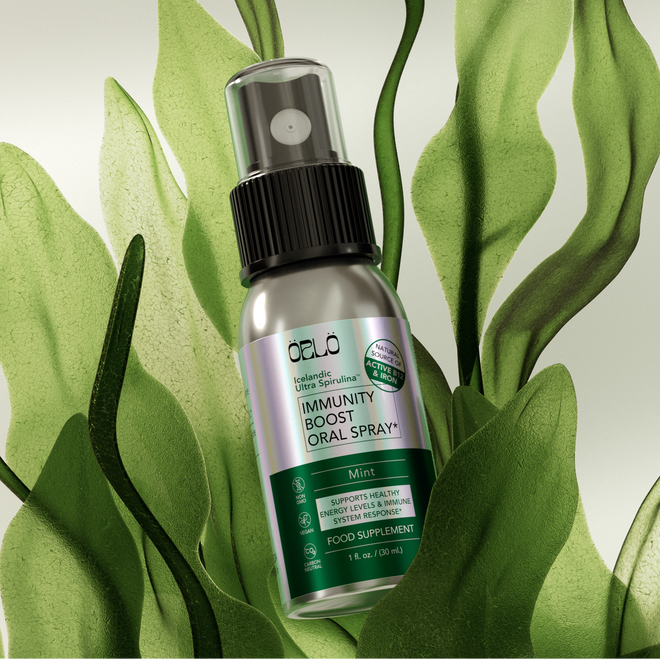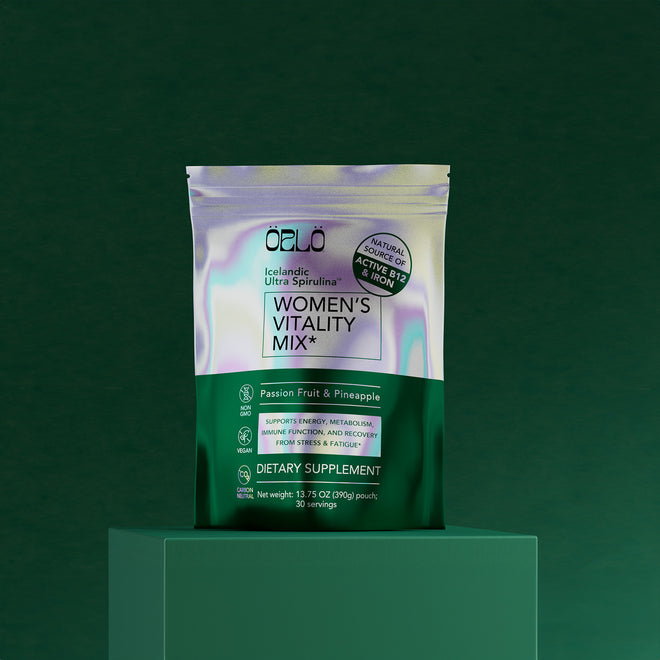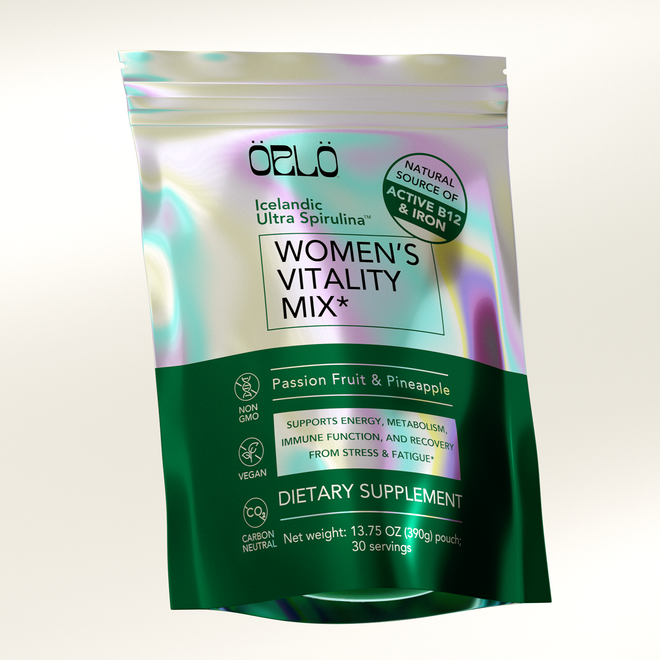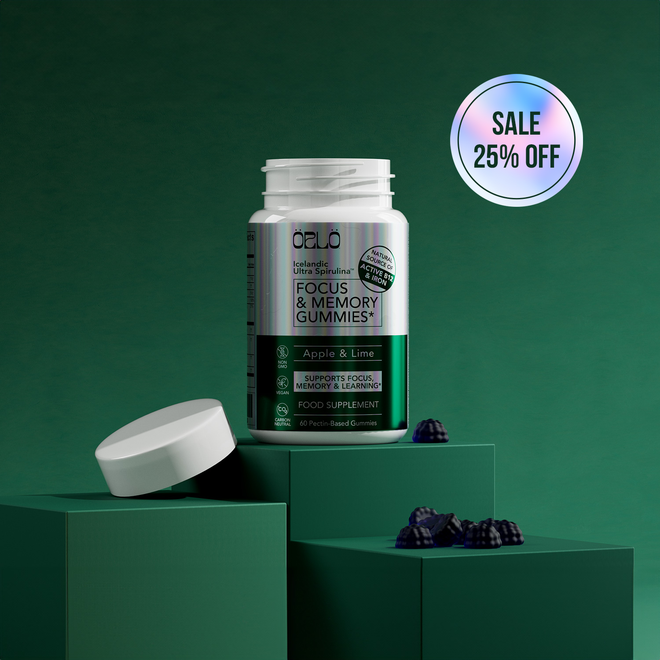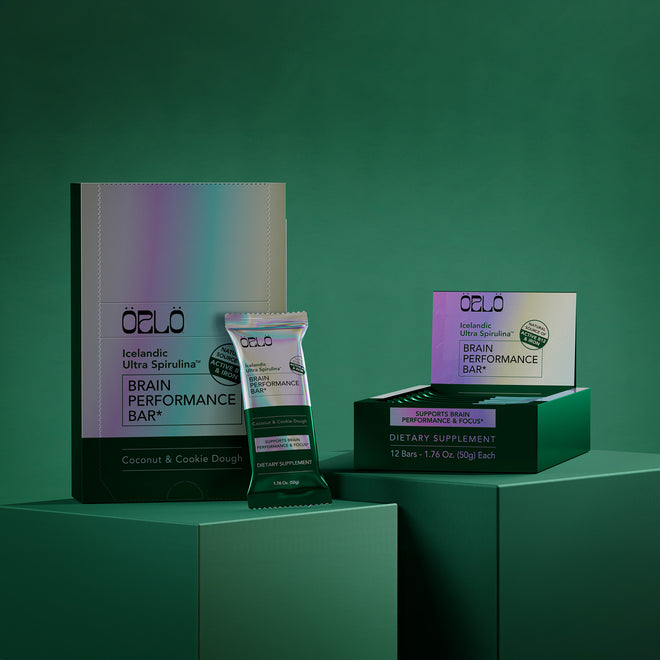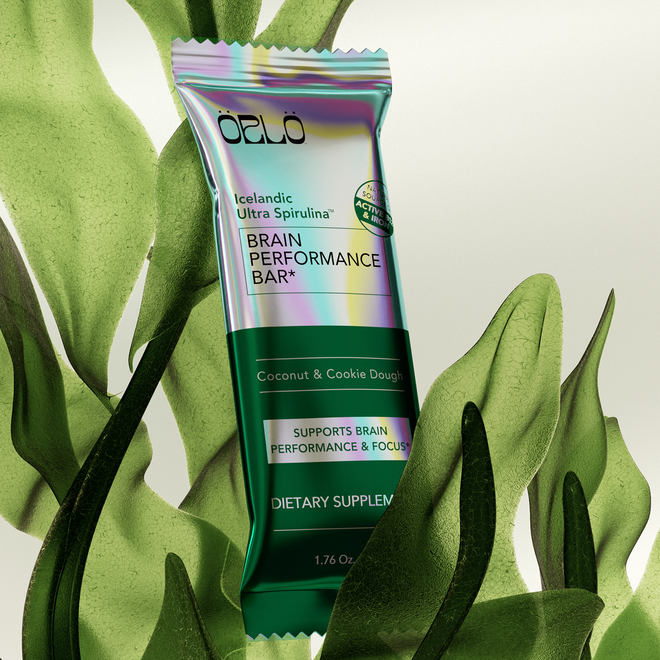Free shipping on purchases over $69
Foundation Of Men’s Hormonal Health And More With Dr. Jeff Crippen
Watch the episode here
Men are known to be less open to having conversations about their health, particularly hormonal health. Often, they need that gentle nudging to address and seek help for their issues. Here to illustrate the importance of talking about men’s health is Dr. Jeff Crippen—a Chiropractor, nutritionist, and coach, who enjoys helping others unlock their true potential. With his own struggles in finding an effective treatment for debilitating migraines, Dr. Crippen highlights the importance of speaking about your health and seeking answers. Because often the better way to create and maintain health cannot be found in the traditional medical system. These experiences are contained within his book, Timeless Youth, which he shares in more detail with us today. Plus, find out more about the reasons behind hormonal issues among men, how they can improve their testosterone levels, and why nutrition unlocks the unanswered questions about certain health issues. Don’t miss out on all of the crucial information!
Key takeaways from this episode:
- Types of headaches
- Feeding and rebuilding the body one organ at a time
- Reasons for hormonal issues in men
- The foundation of men’s hormonal health
- The importance of advocating for yourself
Guest Social Links:
Website: https://crippenwellness.com
Instagram: https://instagram.com/jeffcrippen
---
Foundation Of Men’s Hormonal Health And More With Dr. Jeff Crippen
Welcome to another interview episode. June is Men's Health Month. As part of our feature, we're going to bring in a few medical professionals to discuss health challenges that affect men. Here are a few statistics to kick us off. Did you know that men are 24% less likely to visit the doctor for regular checkups? All you had to do was ask me. I have to tell my husband each January, "I get my checkup, and so do you." Heart disease is also still the primary killer of men but perhaps a lesser-known fact that we also covered in an episode is that suicide is the number two killer of young men. This means that now more than ever, we do need to focus on not only our physical health but our mental health.
I am going to be joined by Dr. Jeff Crippen to discuss this and learn more about how he integrates these sorts of practices into his every day as he serves men and women in his community. I'm going to go ahead and bring him right up in the interest of time but also remind everybody here that as it stands, anything that you read is for educational, informational, and perhaps entertainment purposes only. We are not here to treat, diagnose, cure, or otherwise augment your health. If you do have a specific health condition that is troubling you, you need to be working with someone. Perhaps that could even be Dr. Jeff. Welcome to the show.
Thank you. It's a pleasure to be here with you and your audience.
As we discover more about you, I wanted to first let you share in your words what brought you into this world of natural health because you have a long story that starts when you were at the young age of only six years old. Tell us a bit about what got you into health and nutrition in the first place and why you're so passionate about this.
Thank you very much for that question and the opportunity to be here with you and your audience. It started when I was six years old. It started pretty innocuously. It started with a headache. I would have been about first grade at that time. You have a headache. It comes and goes. You continue with life, and then the headache comes back a little more frequently. They started getting a little more severe. My parents did at that age what we knew to do, which is to go to the pediatrician. In the pediatrician, you start with children's Tylenol, children's Motrin, children's Advil, or all of those as you work through it.
The headaches continued to get worse. I started specifically on ibuprofen. I started to graduate to prescription pain relievers. As the headaches continue to progress, you start reaching and looking for more answers. I eventually ended up with a neurologist and a neurosurgeon. Part of that is progressively worsening headaches in a child that don't respond to traditional pain relievers are a red flag symptom, meaning something bad could be going on here. They're looking for a mass, a tumor, or an infection.
After a couple of years into this journey, that's what happened. They recommended I get a CT scan. They found something in my brain. They didn't know what it was. They did an MRI and eventually found it to be benign. It's a non-growing and non-cancerous mass in my brain. They did roughly a dozen MRIs over the next ten years to make sure it wasn't growing. It turns out it wasn't.
They talked about brain surgery to remove it as a 9-year-old or 8-year-old. When they talked about brain surgery and they said they didn't want to do it, I was a little disappointed at that time thinking if that was the cause of the headache and that was going to take it away, you get excited that there's an answer and that there's finally something 2 to 3 years into that journey. I was hopeful. Looking back on that, I have a little different perspective on that. I'm probably grateful I didn't go that route if the doctor didn't recommend it. That's how it started.
You're talking about many years ago. There have been a lot of advancements in how they take out tumors now. A lot of times, they're going through the nasal cavity. Depending on where it is in the brain, they might have to cut through the scalp but often, they're able to do glioma removal through the nose, which is incredible.
The amount of technology in the medical system is honestly breathtaking. The amount of technology, knowledge, and innovation in that system is incredible. Mine was in the occipital lobe right by the back of the head.

It's not through the nose.
I don't remember talking about it. I remember thinking about how they would do it. I don't know if it's what he said but they didn't end up doing it. They did a whole bunch of MRIs to confirm it wasn't growing but even at that time, I never quite understood how that could be the cause when sometimes the headaches were on the left side of my head, and sometimes they were on the right side of my head. Sometimes they throbbed. Sometimes they were constant. Sometimes they were better, and sometimes they were worse. How could something that wasn't changing be causing the symptom that was constantly changing?
I spent a few more years going through the medical system and different specialists trying cocktails of different drugs to help handle the pain. It was through that system and ultimately frustration on my part or never getting that headache better that eventually, I started looking at alternatives. That's how I got into the more natural healthcare space but it was a decade-plus of pain quite literally and figuratively that led me there.
Migraines are quite rare in men. Often, men suffer from what they call cluster headaches and not migraines. Was this rare, especially for a child, to encounter this?
There are different types of headaches as you're alluding to there. The traditional cluster headaches typically come in a pattern. They're bad for a few weeks to a couple of months, and then they may disappear for years. They tend to cluster together. There are tension headaches, traditional migraines, and then migraine variants. There are three main categories of headaches. The migraine variant was the other catchall category. That's what they told me I had when I finally got a diagnosis.
There were times when I did get true migraines but at its worst, I had a headache for about two years every moment and every day nonstop for a couple of years. I always had a background headache. That is how I describe it. Sometimes different other headaches would layer on top of that. Sometimes you would get nausea, sensitivity to light, sensitivity to sound, or the more intense symptoms that are more typical of a traditional migraine that would layer on top of the other type.
They also diagnosed it more as a rebound type of headache. At one point, it was, "Take ibuprofen every 4 to 6 hours when you have a headache." When you take that every 4 to 6 hours for years, you're having to detox. This might have been at 12 or 13 years old. They're saying, "You have a chemical dependency on some of this stuff." I don't have the stats on this migraine variant. Headaches in general are skewed toward women, including these migraine variants.
You went through and became not only a chiropractor but a nutritionist. You're a doctor of chiropractic and a nutritionist.
A certified traditional naturopath is the title but the part of it that jumped out to me was the nutrition and the idea of feeding the body and looking deeply at rebuilding organs and the body one organ at a time, how those organs interact with each other, and how food is incredibly valuable to that.
Nutrition is the idea of feeding the body and looking deeply at rebuilding the body one organ at a time.
When you were getting to the root of your troubles with this migraine, what did you ultimately discover was the root of the cause? Was it the tumor at all? Was it something else entirely?
There are different levels to answer that question. At one point, the medical system pointed to that and said, "This is the cause." We must have done a dozen MRIs during those ten years. I did one about ten years after that. I jumped into a pool in Mexico that was a little too shallow and hit my head. I ended up getting an MRI there. They were a little concerned because these people didn't know that I had a history and that they found something in my brain. It was still there. It looked roughly the same years later.
That's what they pointed to. One radiologist thought I might have had a little stroke before I was born, and that might have been part of that cyst or that mass. That type of cyst is called a congenital arachnoid cyst. It's part of the meninges. It's part of the brain about the size of a dime in that occipital lobe or the back part of the head. If there are any football fans, specifically college football fans out there, there was a coach at the University of Florida and Ohio State. His neighbor is Urban Meyer. He retired from coaching twice. He had a similar congenital condition that they think affects 1%, 2%, or 3% of the population. I give you or the audience that background to say that's what they pointed to.
What I found in my life or through my healing journeys is first, when I got chiropractic adjustments, that would lessen the symptoms. It would take symptomatically the headache from about a 7 out of 10 to a 4 out of 10 or something like that. It would help handle the symptom but it didn't fully address the cause for me. Where I started rebuilding my body was with the cardiovascular system. I started with specific whole food-type supplements to rebuild. For me, the main organ that hit the stress was the cardiovascular system, which can be a system quite commonly implicated in headaches but that's where it began for me.
I know that you've written a bit about your experience too and even created a book called Timeless You-th. I wanted to talk about a couple of things here because while we may be diving into men's health and men's personal experiences, these topics touch us all. Often the sorts of health complaints that a man has will feather right into a woman's life as well. Two of the complaints I hear most frequently from men have to do with energy. They will say, "I don't feel as vital, vivacious, or energetic as I did 10 or 15 years ago. I want my youthful energy back."
They also connect that story to their feeling of sexual prowess. Are they also feeling like they can perform in every capacity physically? This affects their relationships and sense of security. I'm sure as a man, you've also experienced some of this stuff. I would love for you to talk about how you approach these sorts of topics that often come up for men and how you're able to help people with your practice and even with your book. If somebody is not able to reach you directly, what can they expect to learn?
You do get these conversations often. I'm sure you're well aware that women tend to be a lot more open as you've alluded to in previous episodes. Your experience with your husband tends to be more open about health, and it's easier to have those conversations. I'm not going to generalize all of the men in my practice but most of them tend to come in through at least the gentle nudging of a wife or a significant other, or because the wife ends up doing well and they want the husband to be part of it. It's typically how that happens.
As soon as you start saying low energy, a little bit of fatigue, and a little bit of sexual prowess in the medical system, it's a very quick direct line from there to testosterone replacement therapy and taking it in whatever form that happens to be in. That's the medical option for that. My experience working with patients is those who have done that typically feel great and phenomenal.
I had one mentor call it the Superman phase for a while for the first 3 to 6 months. All of a sudden, it starts to die off a little bit. The symptoms start to come back like fatigue and the lack of prowess. They up the dose and feel pretty good again, maybe not quite as great as before. It dives off, and then you get into the cycle of increasing the dose going forward.
What I like to explain to patients is what's happening. The question I want to ask that doesn't get asked often in the medical system is, "Why is your body not making testosterone? What's going on there?" That's the first question. That's level one. The other option could be that they're making the testosterone but it's not free testosterone. It's bound to something called sex hormone-binding globulin. Why is it bound up and not being able to be used? What I think through and what I encourage patients to think through is, "Where is the testosterone made?" We start looking at what nutrients we need for optimal testicular function.
Another common reason for hormonal issues especially in women but in men as well is the adrenal glands. The adrenal glands in a woman are responsible for progesterone production during the first half of their cycle while they're menstruating and are largely responsible for that postmenopausal. Often, when you see decreased hormonal function, where does your body make testosterone, estrogen, and progesterone? Where does that come from? Ultimately, it comes from cholesterol.
They have to consume fats. This is the thing that gets me so much of the time because we villainize it. Even if we think that we have outgrown this and we're no longer living in the world of the '80s, I still see Lemonhead, the candy labeled as a fat-free food. This is ridiculous. We all know better. Fat is more nutrient-dense but it also improves satiety. You feel full for longer. It can be used for energy. Your body needs fat to create hormones in your body. Cholesterol is fat. We need to do this and eat a variety of foods to get the right fats.
The question I had at the tip of my tongue as I was hearing you describe men's energy levels coming down and needing to get on testosterone was on one side, we're talking about a male menopause but that's not what's happening. What's happening is that we're living a more sedentary life. We're not eating the right foods. Our energy wanes. We're on our screens all the time as opposed to being physically active. That impacts our mental health negatively too.
All of these things bind up together to create a situation where our adrenals are overspent. We don't have the building blocks we need. Suddenly, we're going to the doctor to say, "I have low energy." That could lead to erectile dysfunction later or other issues. You've gone through the nutrition work. You've done that too. What are you guiding these men to do? Simply increasing their testosterone dose time and again is creating a situation where they need more next time, which to me doesn't sound like a solution.
It can be but it's not health. It's not rebuilding the body's ability to do that. Let's talk about what naturally tanks testosterone levels. Through that, we can get to the answer to your question. What lowers testosterone? Obesity and a lack of physical activity. What can we do from that? Working on working on weight and body fat, exercising, and specifically strength training is the single best type of exercise specifically to boost testosterone.
I'm tossing my head back and forth because I agree. This is the thing that also is perplexing because when you get more testosterone, you're able to lift more weight. If you could get them while they're doing that first test of dose of testosterone, and perhaps they're getting it in shots or something like that, to also at the same time add some gym time, they're going to increase their muscle mass. Their muscles act as an organ too and will help them create more testosterone. They start to go into the solution phase but too often, people want a shot or a pill, and then they don't think about the other part. How do we get them to also jump over that hurdle?
You raised a good point because it doesn't have to be either/or. It doesn't have to be either we do it naturally or we take the testosterone from the medical doctor. You could do a hybrid approach of both. How do we get them to do that? We have to find them. Where I start is education. I start by giving them options. There are some patients who want that shortcut. They want to feel well, and they're not particularly worried about 9 months, 18 months, and 2 years from now. That ends up being a good option for those people.
Through education, if they understand, I might show them a simple diagram that cholesterol and ultimately fat is a key or maybe even one of the key nutrients to the entire hormonal system for men and women. What do we have an epidemic of? Low testosterone, women on hormonal replacement therapy, and low vitamin D. All of those are made from cholesterol in the same pathway, which ultimately, all come from fat. You look at cholesterol-lowering drugs. The first one was in 1985. They became popular with the statins in the late '90s.
Cholesterol—ultimately, fat—is one of the key nutrients to the entire hormonal system.
Was Lipitor the first one?
Lipitor was the first statin. That was a huge one. There was a different class of drugs. I don't remember which class it was but Lipitor was the big one and still was the kahuna in that area. What it does is it poisons a specific enzyme called HMG-CoA reductase, which blocks the formation of cholesterol, which is good but as you've talked about on other shows, fat and cholesterol specifically are essential for brain function. You have all of those long-term consequences of that.
If we can get them moving, poor sleep quality and ultimately cortisol production will also tank testosterone. The more stressed someone is out there, especially from poor sleep, will tank testosterone. Zinc and specifically vitamin D are important nutrients. Zinc is the key mineral in testosterone production. It's also one of the key minerals for insulin production and insulin function along with chromium.
That's another link to that blood sugar and testosterone connection. You can look at lifestyle choices, alcohol, and recreational drugs, both of which can tank testosterone levels. You can have that dysregulation of the hormonal system. We call it the HPA or Hypothalamus-Pituitary-Adrenal axis. It's how well one part of the hormonal system talks to the other. We all have this thing right here. I'm holding up a cell phone. I was at a seminar once. The speaker called it a mobile castration device.
Don't wear it too close.
That was the idea. Even the back pocket, the further you can keep that cell phone away from you when it's on, the better. Ultimately, the reason the testes hang outside the body is they function optimally a couple of degrees cooler. Excessive heat, whether that's from tight shorts, biking, sauna use, or a lot of heat work can impair testosterone production. Those are the checklists we look to on the natural side that I help them understand.
From a holistic perspective, you're looking at, "Do they have the essential fats they need?" Optimal cholesterol level is incredibly important. You're looking at the zinc level and then maybe going down a little further into some herbal remedies if you want an additional boost to that but I start with the foundation. That is the things we went over. That is what I consider the foundation of men's hormonal health.
You don't simply give people testosterone without measuring their levels. I want to talk for a moment about what kinds of tests you tend to run in people who come to your practice. I wanted to pause for a moment here and read a review from your website that I found particularly compelling because this can help people to personalize it. You deal with a health challenge. You go to see somebody a little bit more skilled at understanding lifestyle, nutrients, and how your other habits can impact your health. They're going to be able to help you get on track.
This is a testimonial on your site from Rigoberto. I love the name. He says, "A very important issue for me is health improvement, more specifically, keeping myself with a subtle, sustainable, and good-quality energy to generate great things and share part of my life with others. I made lots of improvements with Jeff. I changed my mindset on this issue and my body as well. The nutrients were like a shot for me. Lots of energy like the effect of taurine and caffeine and high doses. Thanks for sending me all these natural healing and stimulants for a green zone body." That's from Rigoberto A, Energy Levels in Leon, Mexico. How did you help Rigoberto get there?
He is a business coach down in Mexico. What we did with him was we worked with energy levels. He was coaching clients and group coaching calls. 8, 10, 12, or 14-hour seminars are what he was working for. Some of the key things we did were in addition to laying the foundation, we worked with adaptogenic herbs. If I remember it right, Rehmannia and licorice were some of the key ones we worked on for their adrenal restorative effects.
I'm going to point right there that it's adrenal fatigue that you're talking about specifically.
You got it. Licorice has a bit of a cortisol-sparing effect. It helps with early-stage adrenal fatigue. It can be very helpful. That's what he was describing. We might have used a little Korean ginseng as well but those were the key things he worked on. It was licorice and Rehmannia that he talked about. It was that natural caffeine as he called it.
When we interviewed Dr. Doni Wilson a bit ago, she made specific comments about how often people don't know if it's their adrenals that are shot or if their cortisol levels are abnormally high or abnormally low. The treatments for these things can vary widely. I would like to get back to talking about how you test for these things to make sure you're getting the right treatment for the right people. I would like to dive into the things that work broadly like omega-3s as well.
In terms of your first question, as a chiropractor, we don't prescribe testosterone. We don't put anyone on testosterone therapy. We will do some testing on it. What are some of the foundational tests we do? In this case, we look at blood work, free testosterone, total testosterone, and sex hormone-binding globulin. Those would be the key three key tests I would look at. That comes from the blood test side.
If we want to dive deeper into it, we will also look at what's called saliva testing. In your saliva, the free fraction of the hormones are present. You can do that. The benefit of that is it's easy to do. You don't have to poke yourself but if you want to look at things like adrenals, which is where you went with that question, there's a rhythm as you're aware of the cortisol levels in the body. How can you get a picture of your cortisol level at 6:00 AM? It's different from noon, different at 6:00 PM, and different than before you go to bed. Rather than having to get blood drawn four times a day, you can do it with saliva.
That would be a good way to look at that. With saliva, you can look at the whole hormone pathway. Healthy fats, as you talk about, start with cortisol at the top and then go down. You can look at different steps along the way. Specifically, in the case of men, you're talking about testosterone. You can look at DHT or dihydrotestosterone, which is what testosterone can be converted into. You can also look at estrogen levels because sometimes, you will see men after a while taking a high dose of testosterone who start to look like women or start to develop man boobs. It's the technical term for it.
There might be another term for that too.
There might be a few other ones. It's the less technical term. What you're doing with that is that testosterone is being converted to estrogen. That's why most doctors will prescribe what's called DIM or cruciferous vegetables in general. They are one of the things that can inhibit that conversion among other things.
It's because they're getting too much testosterone though in the first place. They're being over-driven.
You haven't solved the conditions that were driving it. If the person is low on testosterone, to begin with, the body is already either not making it or converting it into estrogen. If you give them more, you're going to convert more of it into estrogen. Unless you solve that original problem of what wasn't right, you're taking a shortcut that's not going to get you where you want to go most of the time.
The final thing that you mentioned was the omega-3 index. That is something we use in our office. That's something I find incredibly important. I did my most recent tests. I sent mine off. Some of the research on omegas is credible. Talk about a 20% to 30% decrease in all-cause mortality from having an omega-3 index at 8% versus 4%. That's one of many examples of that.
Connecting it back to the hormonal issues we're talking about in adrenal gland function in general, progesterone, testosterone, estrogen, cortisol, pregnenolone, DHEA, which is largely considered an anti-aging hormone, aldosterone, and a few others all drive from the healthy fats of that cholesterol molecule along with vitamin D. Making sure you have not just enough fat in your body but the right fats can be very foundational to build great health.
The right kind of fats can be very foundational to building great health.
I want to stop for a moment and share with people the offer that Olro Nutrition has created here. We are such big believers in the need for more omega-3s. Perhaps I'm as much of an evangelist as Bill Harris might be about everything that they can do for you specifically because I have deep knowledge in the space and understand that every single cell in our bodies requires omega-3 EPA and DHA to function optimally.
When we talk about optimal health, what we're talking about is doing things like having a drop in all-cause mortality because we get to the right nutrition. What has happened in our society is that omega-3s have been stripped from our food sources. The seed oils that are on the shelf are omega-6s. Seed oils get a bad name but Bill Harris, who's a doctor in the omega-3 space and a researcher specifically that focuses on this, would remind us it's not that omega-6s are a bad fat.
They are not bad fat. It's that we don't get enough omega-3. Omega-3 isn't as shelf-stable. That's why it has been stripped out of the seed oils. Omega-3s are also not present in terrestrial plants in the bioavailable EPA and DHA form. We have to go to marine sources. That means fish and algae but the fish get their omega-3s from the algae they consume.
What we have done at Orlo is figured out a way to maximize the production of the omega-3s in our algae to do so in the polar lipid form. When you have the polar lipid form, it gets right into your cells and tissues much more easily. It doesn't burp back on you or create that fishy reflex. Other algae oils, not just fish oil will do that too if they're not in the polar lipid form. It creates an aldehyde byproduct in your stomach, and that comes up as a burp.
We have solved that. We have given you the polar lipid form. We believe that it can improve your health. We know that we have seen this in product tests. What we have decided to do with Orlo is to provide two omega-3 index tests as part of a Tested By You campaign. Why this is so critical is not only to get you up to that 8% but also because we're giving you your baseline and then testing you again after four months of supplementation.
These tests aren't cheap. They come at $50 apiece. If you try to get the same medical tests done at your doctor's office, you're likely to be charged double because they like to tack on a premium to everything. If you don't want to do the Tested by You campaign, you can buy the Omega-3 Index Test on our website for $50 or you can go to OmegaQuant directly and buy it for $50. In both cases, it's their lab that's taking care of it. You get that research third party. You see the results.
If you subscribe to the Tested By You campaign, you get one test to get your baseline and one test after your fourth month. It's $100 of free tests with a subscription, which already gets 15% off. That's my soapbox for the day but I also want to give one offer on top of that. If you use the code TESTNWC, you will even get an extra 5% off at checkout of the test specifically. That means that you're getting an all-in discount of 20% off, which is something that you won't see, and $100 thrown in with it.
I am a big advocate for this. I want people to understand and take advantage of the offer. It is short-term. We're going to run out of the tests. When we do, the program ends. Do it now. I won't have to do that again. Dr. Jeff, I'm sure you want some too. You sent in your test. The last time you got your results, what did they look like? What were your habits at the time? I'm curious.
It would have been right around December 2022. At the time, my number was a high 5%. What I learned through that was 1) It wasn't good enough. 2) I live in a smaller town in Texas. It wasn't easy for me to get good quality fish in the way that I wanted to. I don't like to cook fish. Sushi is more where I draw to. I didn't eat much fish at all. I've done some more omega-3 supplementation but at a lower dose. What I had done since then is increase fish consumption as well as supplementation. I'm eager to see that result. That was my most recent test. That's what I'm looking to see an update on to track where am I at compared to where I want to be with that.
I love that because you want to be at the 8% minimum. I'm with you there. I've been in this space for a long time but I also have been conducting my experiment on my body. I stopped consuming fish before I took the last test, which was when I recorded with Dr. Bill. The reason I did that was twofold. I don't believe that our industrial fishing complex is sustainable anymore. I'm a climate activist. The more I read about it, the more I'm sure that we don't have a good solution here.
I know too much about fish farming, and that makes me dangerous. I don't like consuming farmed fish. While I might go ahead and say shrimp now and then or some oysters, the frequency with which I would eat that type of food is low. I wanted to see what it would be like if I wasn't consuming any marine sources of omega-3s and supplemented with our bioactive omega-3s in the polar lipid form, a single dose every day. My results came back. Bill Harris made me take the test on air.
I came back with about 6.5%, which isn't terrible even though I was only taking about 300 milligrams of EPA and DHA a day, which anybody in the fish oil space would tell you is low but because we have up to three times better absorption than fish oil, it's comparable to consuming much more. It's comparable to doing something like eating fish roe as opposed to eating fish meat. I'm choosing to now up it from two soft gels a day to three because of my diet and lifestyle choices. I added walnuts to my smoothies in the mornings. I'm getting more plant-sourced omega-3s. I wasn't doing that before. I used whey protein and a few fruits. I love to put matcha powder in that. I love it.
These were the things I put in. Now, I'm choosing to also add walnuts and chia seeds. I'm doing a chia seed pudding too. I'm getting some omega-3 sources that are terrestrial-based that give me the alpha-linolenic acid but very little of that is ever going to turn into EPA and DHA. That's what the omega-3 index tests. They test for your EPA and DHA levels. I'm probably going to still need to stay at three soft gels a day at least for my present diet lifestyle changes.
That's the value of testing. There's an absolute principle in health that's called biochemical individuality, which means you're different than I am and our audiences. The term was coined by Roger Williams. That's his name. He discovered two different B vitamins at the University of Texas. His brother discovered a third. He wrote a book called Biochemical Individuality.
It helped me understand something that I saw a lot in practice, which is how could two people have similar diets and lifestyles and get different results. What he found is nutrient requirements can vary up to 100X from person to person. The amount of nutrients one person may need versus another can vary tremendously. To get specifically to your question, there can be a lot of variations in the conversion of plant-based terrestrial omega-3s into EPA and DHA.
I've got the APOE4 genome type. Apparently, we have hampered our ability to do that. Even having one representation of the APOE4 genome type, which is associated with cognitive decline like Alzheimer's and other issues in later life, perhaps is also lending to the reason. There's a genetic component and then also a food component. The more you learn about nutrition and fats, it's like omega-6s also compete for the same enzymes to break down.If omega-6s are that much more prevalent in your diet because that's what's in every single packaged food, then your enzymes are busy breaking that stuff down and can't spend the resources to do it on the omega-3 side. It makes sense. It's not just your individual chemical makeup. It's also your genetics and then the other factors in your diet. The fact that we have individual chemistry to me makes so much sense. I'm going to go pick up that book. That sounds phenomenal. I want to know more.
He wrote it in the '70s. It's a phenomenal book. It tells you from the title what it's about. You look at not only that. Some people are bigger than others. Some have more nerves. If you're a bigger person, you have more nerves. You need more healthy fats to coat those nerves in the brain. Even pregnant women need more of everything. Weightlifters need more protein.
Not everything. They need a lot less of the toxins.
More nutrients are what I was saying in terms of protein consumption and iron. They need a lot fewer toxins. You look at nutrient requirements. Omega-3s are a great example. When a woman is pregnant, the importance of that is incredible. The needs can go up as you're developing the baby. Nutrient requirements can vary not just based on genetics, lifestyle, digestion, and gallbladder function, which are important things for any nutrient, specifically some healthy fats. You start layering these on top of each other.
Testing ends up being a great option for most people because you can say with confidence, "Here's the percent that ended up in the cell membrane, specifically in the red blood cells." You got an average of the last roughly three months. You got something that you can know what's individualized for you for dosage. The stats are pretty clear. Give or take 97% to 98%-plus of all people are omega-3-deficient. We know almost everyone can benefit from it but the question you're answering through that testing, which is great is, "How can I know what's the right dose for me?" You can experiment and see how that goes. I love that idea.
The reality is at $50 to buy the test and do it yourself on a twice-a-year basis isn't crazy because, at the end of the day, the most expensive supplement you consume is the one you're not absorbing or the one that's working against you. There are cases where people take a product that works against them. You need to think about these things.
For me, an individualized approach to supplementation is generally very wise because you might have something like an omega-3 or a vitamin D that virtually everybody can benefit from at a certain amount but too frequently, people who decide they're going to supplement with vitamin D decide to take a lot more of it than they need. They end up with complications that they didn't expect. They might end up with a kidney stone, for example, which can be a painful thing. They can end up absorbing too much calcium from the foods they're eating and the supplements they're taking. It can get into the soft tissues and create other damage.
These are things that we need to be aware of. In particular, when you're talking about fat-soluble nutrients, going overboard can sometimes be a bad thing. It's hard to go overboard with omega-3s. I've done it once. I did get to a point where I was taking so much omega-3. This was years ago. If I cut myself shaving, I could not stop bleeding. It's not that it thins out your blood because it doesn't but your platelets end up getting so slippery they can't get together.
I would bruise very easily. I run into the doorknob, which is something I do practically every day, and I would have a bad bruise. It's possible to overdo it. It's very hard to do. There's probably 1 in 500 people who take a lot of omega-3s. I happened to be demonstrating it at trade shows, showing people, saying, "It doesn't taste fishy," and doing all this with the fish oil. I took way too much. I'm the only person other than one other that I know that has ever done that.
As it stands, I want to be sure that we get a chance to talk a little bit more about your book Timeless You-th because we have touched on it with the energy piece but I haven't had a chance to review this yet. I would love to get a copy and then invite you back to talk about your work with Timeless You-th. I did listen to an episode of another podcast that you guessed on. It sounds compelling. I want to give you the opportunity to give people the one-two punch of what they can expect from the book, where they can get it, and any additional resources you would like to share.
That's awesome. Thank you. I'll jump in. Through that journey and through working with patients, I wanted to be able to understand. The biggest issue is the medical system. Generally, it is a lot like the Titanic. It's the biggest. It's the best. It has some of the best technology on the planet. It has a lot of good people but it's sinking. That's the idea. It's sinking because the medical system has little to do with health and not a lot to do with care. The idea of it being a healthcare is a misnomer. It's more of a disease treatment system. The question is, "What does it take to get back to health?"
In the book, I go through the principles or how we understand the principles that make up health. The idea is what's super important is not to understand the latest biohack, which could be cool but how we can rewire our brain to understand what health is if we do that, then we can understand why those biohacks are helpful or important and make sense in why they work.
One of the principles is what I call the Model A principle. That's one size doesn't fit all. The idea comes from the Model T, which sold tens of millions of cars. It's largely responsible for the assembly line with Henry Ford. That's the single bestselling car ever made for years until all of a sudden, it wasn't. Henry Ford famously said he didn't listen to his customers and salespeople.
He famously said, "If I would have asked them what they wanted, they would have said they wanted a faster horse." He ignored what was there and went with what he knew. By ignoring all that, he made the Model T, which came in any color you wanted as long as it was black and looked like all the other ones. He took out all the options to streamline the production of it.
That's a lot of what's happening in medical care where for a doctor to sit down with someone and treat them or talk to them and do a 5 to 10-minute visit, you have to assume one size fits all. That's what's going on there. That's what fits into what we did with testing. In that chapter, that's when I go into more depth on the biochemical individuality and how that applies throughout our healthcare, not just with that but with things like epigenetics and supplements. You look at how that principle applies throughout.
The book is helping someone rewire the brain and look at what's there. I wrote this book to try to help more people learn from the experience I went through and set up a more positive context for them. He wrote it for the woman who went to the doctor. They're tired and fatigued. The doctor says, "Your blood work looks normal. I'll see you in a year."
Even worse, they gave them an antidepressant or said, "I can't find anything wrong with you." It's for the people who are in that system not quite getting it. The book is rewiring what is health, separating us from the disease care model, and then understanding what are those principles to make that up so we can supercharge our results and get healthier as quickly as we can.
You're reminding me of a book that somebody I interviewed on another show wrote called Sidelined. Especially women would appreciate that even if we have spent some of the time talking about men's health. The book is about how women often aren't listened to by their medical doctors. Their wants, desires, and needs are sidelined. We don't necessarily learn to advocate for ourselves. We're told that the doctor knows best.
Sometimes we don't listen to our inner voice saying, "Something is wrong here," or we find it too challenging to get a second opinion because we don't even know where to start. She wrote that book for that individual. We can all advocate for ourselves a little bit better. Sometimes it means we need to know what our insurance covers and when it doesn't. Sometimes we aren't using the full benefit of our insurance. There's stuff in there that we didn't know we could do. We rely on our doctors to tell us what we should be doing.
I have a key example in my personal history, which is that I'm hypothyroid. My insurance will only cover certain portions of what the required testing is for T3, T4, and free TSH for me to get a full bandwidth understanding of how I'm doing but at this point, after ten years of being hypothyroid and using a Nature Throid-style product, I'm pretty good at assessing when things are off. I know when things are off. I can feel it.
We also need to learn to listen to our bodies and the intelligence and wisdom that comes from within. If we can do that while also advocating for ourselves and our partners, getting them to go to the doctor, and not being part of that statistic that never goes, then we can be aware of what our health generally speaking is and get some better tools to be able to engage and not only have that timeless youth.
I'm going to quote Dr. Joseph Maroon on this one who did guest on this show as well and who I've known for years. He's a neurosurgeon and the team neurologist for the Pittsburgh Steelers. He says, "I want to die young as old as possible." That man is now over 80, and he's still doing Ironman triathlons. He's doing it right. I want to follow in those footsteps.
They are great footsteps to follow there.
That's timeless youth.
It sure is. You were talking about the importance of unlocking our ability to heal. I'll hold up the cover here. It's TIMELESS YOUth, the play on that word.
You carry the T and the H. I love that.
All healing begins with you. The number one truth in your health is you. Ultimately, when you go to the doctor or work with any health coach or consultant, they're working for you. You can fire them, hire them, and get second opinions because it is in our hands. If we make the assumption of not being fully responsible for that and giving that to a doctor, often we're going to be disappointed at the results, which is what you were saying there. The importance of a patient advocate and the importance of advocating for ourselves is tremendously important and valuable. I get into that. That builds the final principle in the book, the one I call the Golden You principle. How can we unlock our ability to heal, which is super powerful?
I love that idea. We're unlocking our ability to heal. Listening to your body, listening to the power of your intention, and then advocating for yourself are all key things. Thank you so much Dr. Jeff Crippen for joining me. I appreciate the conversation. I look forward to having you on again so we can dig in more deeply into Timeless You-th.
Thank you so much. You got a book on the way to you. I look forward to the conversation.
That's fantastic.
---
What a treat. I hope that you enjoyed getting to know Dr. Jeff Crippen as much as I did. Remember, if you're trying to jumpstart your health, and you've never taken an omega-3 supplement or even if you have, there's no time like the present to get started, reengage, and start taking those omegas again. You can jump right over to OrloNutrition.com and buy the Tested by You program subscription pack. You will get an omega-3 index test with your first shipment so you can get your baseline wherever you are. You will get your second kit with your third shipment. This will mean you get a snapshot of your before and after. Not only is it a $100 value in addition to the everyday savings that you receive but you will be getting the powerful omega-3s that your body needs to thrive.
Remember to use the Code NWCTEST at checkout, and you will receive a bonus discount on your order on that Tested by You program. If you have questions about what we covered or topics that you would like us to dive more into in future episodes, please reach out via social channels, or you can always email me directly at Hello@OrloNutrition.com. As we close the show, I hope that you will raise a cup of your favorite beverage with me as I say my closing words. Here's to your health.
Important Links
- Dr. Jeff Crippen
- Timeless You-th
- Master Your Stress: Recover From Stress, Protect Your Health, and Take Back Your Life With Dr. Doni Wilson
- How to Check If You Are Getting Enough Omega-3 (Free Test Offer Included!) With Dr. Bill Harris
- Omega-3 Index Test
- OmegaQuant
- Biochemical Individuality
- Sidelined
- Sidelined: How Women Manage & Mismanage Their Health With Susan Salenger
- Balance Your Health From Square One With Dr. Joseph Maroon, Internationally Renowned Neurosurgeon, Team Neurologist of the Pittsburgh Steelers, and Ironman Triathlete
- Hello@OrloNutrition.com
- https://Instagram.com/JeffCrippen
About Dr. Jeff Crippen
 Dr. Jeff Crippen’s mission is to live life to the fullest and help others do the same. He is a Chiropractor, nutritionist and coach who enjoys helping others unlock their true potential. His passion stems from his own personal struggles.
Dr. Jeff Crippen’s mission is to live life to the fullest and help others do the same. He is a Chiropractor, nutritionist and coach who enjoys helping others unlock their true potential. His passion stems from his own personal struggles.
At age six, he began suffering from migraines. For the next seven years, his headaches continued to worsen despite the best medical care he and his family could find. At his lowest point, Jeff had a debilitating headache that lasted — without so much as a day of relief — for over two years.
At age 13, he found the powerful combination of chiropractic and individualized nutritional care. By combining these two powerful forces, he was able to unlock his own ability to heal. For the last decade, Jeff has helped clients both through chiropractic care and nutrition at his wellness clinic in Saint Jo, Texas as well as through individualized mindset coaching with the Advanced Coaching and Leadership Center.
He finds a holistic approach — optimizing spirit, mind, and body — the most efficient and effective way to create a lifetime of timeless you-th.

